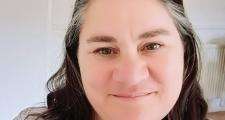Gender identity and ethical practice: a reflection on working with children

Social work is a human rights profession and as such I recognise the inherent rights of all human beings to live free from harm, abuse and have access to the resources they need to thrive.
Years of critical reflection strengthened my evidence-base in practice, and listening to the people I worked with helped me to incorporate strong professional values.
Improvements in children’s mental health are more successfully maintained (following assessment and interventions) if strategies to achieve wellbeing are created together, rather than influence exerted to achieve compliance - not least because misusing power in this way would be deeply unethical.
Of course, social work practice requires a direct communication style but also needs a willingness to engage in conversations with people who may hold different views. As Cass (2024) outlines, professionals hold responsibilities to intervene in children’s lives in a way that supports healthy physical, social and emotional wellbeing.
Sometimes interventions may include challenging professionals or parents who lose sight of the best interests of the child. Our interventions may also include direct communication with parents about healthy child development, or appropriate parenting.
These conversations can be fraught with tension and at times distress, especially in relation to safeguarding, however, our reassurance and guidance should always be ethically communicated, rather than become overshadowed by personal judgement.
It is commonplace for children needing CAMHS intervention to struggle with strong feelings and a sense that there may be ‘something wrong’ with them. Children and young people are still developing their personalities, self-perception and therefore identity is not fixed.
Professionals working with children must exercise caution when met with pressure to affirm social transitioning linked to gender because it may create more harm than good for children still developing their identity. Education and knowledge sharing forms part of evidence-based social work.
The following two case studies provide an opportunity for critical reflection on the implications of how the social work profession might better consider the needs of children who may be lesbian or gay.
Case Study 1
A boy exhibiting anxiety presented for an initial CAMHS assessment, clearly meeting the criteria for an autism assessment.
Parents were reassured, and following referral he eventually received a diagnosis. However, the paediatrician stated in the diagnostic letter that the child was highly likely to need treatment for gender issues in later childhood.
His mother contacted me, explaining that she had seen signs that her son may be gay but recognised his right to develop at a pace that was healthy, disagreeing with need to prematurely diagnose. We agreed that I would provide a professional response to this letter explaining that because he was loved and supported at home and school, his sexual and gender identity were likely to develop without complications.
It is a normal part of early years development to explore toys, clothes and ideas about the self that do not fit into rigid gender norms. Social workers can provide guidance to professionals within and external to our field whilst safeguarding the healthy development of children. This includes children who may in time identify as lesbian or gay.
I worked with many children, boys and girls, who presented with distress linked to sex and gender. Offering therapeutic sessions that include deep listening can provide young people with space to make sense of their identity. Feeling understood helps children reach understanding.
Case Study 2
A 14-year-old natal female attended a CAMHS assessment clinic hoping to feel less distressed. She had socially transitioned, which meant a change of name and appearance but had declined medical intervention.
She had attended an assessment and follow up appointments at the gender identity clinic at the Tavistock, seeking to reduce distress and confusion.
Her parents were supportive, using the teenager’s chosen name, and open to guidance on their parenting approach. The advice I offered was along the lines of ‘high warmth, low criticism, clear boundaries and communication’ simply because this is an evidence-based method of parenting shown to reduce adverse impacts on children.
The relational work enabled this young person to feel safe enough to talk about experiences, telling me after many months, that she had wanted to identify out of being female so she would never be hurt again.
As a young lesbian, her identity had been deeply affected by violent sexual assault, with the assessment and proffered treatment from the Tavistock increasing confusion.
As I understand it, neither experiences of trauma nor same sex attraction formed part of the assessment. The space to feel safe and process trauma without having to tolerate the pressure of making decisions about gender or listening to a professional offer opinion on identity were key aspects to providing a therapeutically safe space.
Professionals who offer parental guidance on approaches must role-model healthy relationships with empathy, which not only reassures all concerned but also supports the maintenance of healthy family relationships.
There is a plea from Cass (2024) for BASW to take part in establishing a group to consider good practice relating to gender identity and children and young people.
We need to adopt better listening, more challenging of unhealthy assumptions about children and more alignment with social work values. We must get better at recognising the complexity of sexual identity, rather than conflating it with gender identity.
Aimee Georgeson is a senior lecturer at a UK university
